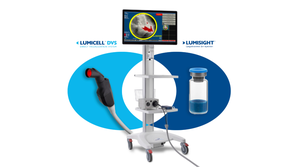Boston Scientific has sued Edwards Lifesciences in Germany alleging that the company is infringing on a patent related to its Lotus transcatheter heart valve.
November 4, 2015

Boston Scientific has sued Edwards Lifesciences in Germany alleging that the company is infringing on a patent related to its Lotus transcatheter heart valve.
Arundhati Parmar
All was quiet on the TAVR front after Medtronic and Edwards Lifesciences ended their drawn out legal battle last year. The Irish medtech company agreed to pay royalties of at least $750 million to the California heart valve company to put the patent infringement saga of claims and counter claims behind them.
And now the peace has been shattered with a new plaintiff and new lawsuit.
On Oct. 30, Boston Scientific filed a patent infringement lawsuit against Edwards Lifesciences in Dusseldorf, Germany. The lawsuit charges that Sapien 3, the next-generation TAVR valve from Edwards infringes on an European patent related to the company's adaptive sealing technology, said Thomas Keppeler, a Boston Scientific spokesman, in an email.
Boston Scientific has developed the Lotus transcatheter heart valve, which is approved in Europe, and has initiated a pivotal study for FDA approval in September 2014.
"The Lotus Valve system was CE approved in October, 2013 and featured many innovative features including adaptive sealing technology, which is designed to reduce paravalvular leakage (PVL) and low PVL was demonstrated in BSC’s CE mark trial," Keppeler said. "Edwards’ Sapien 3 received CE approval in January of the following year and also uses an external seal which it claims significantly reduces PVL when compared to Edwards’ earlier generation valves."
While many have described Lotus device as novel - Boston Scientific calls it the first fully retrievable TAVR device provided it hasn't been released - analysts have speculated on its potential for success. After all, Boston Scientific is a late entrant in a market that has two dominant players — Medtronic, which makes the CoreValve family of TAVR products, and Edwards, which makes the Sapien family of devices.
In a statement, Edwards played on the Johnny-come-lately theme as well.
It is unfortunate that Boston Scientific, as a more recent entrant into the TAVR field, is seeking to capitalize on our long-term efforts and gain greater presence through the court system. Our investments in developing the field of TAVR have been significant, encompassing more than 15 years of trailblazing work and greater than $1 billion dedicated to carefully nurturing the development of this therapy, training clinicians around the world and investing in the clinical research that guides the continuous improvement in patient outcomes.
It's one lawsuit and still early to determine which side will win, but the move demonstrates how keen companies are to gain the upper hand or maintain their lead in a market that is in the billions of dollars.
Edwards alone has garnered about $846 million in revenue in 9 months this year and is expected to beat its 2014 revenue of $930 million handily.
And as clinical evidence of TAVR's efficacy mounts, more patients will ultimately become eligible to receive it to treat aortic stenosis, making it an even larger opportunity.
Arundhati Parmar is senior editor at MD+DI. Reach her at [email protected] and on Twitter @aparmarbb
You May Also Like


